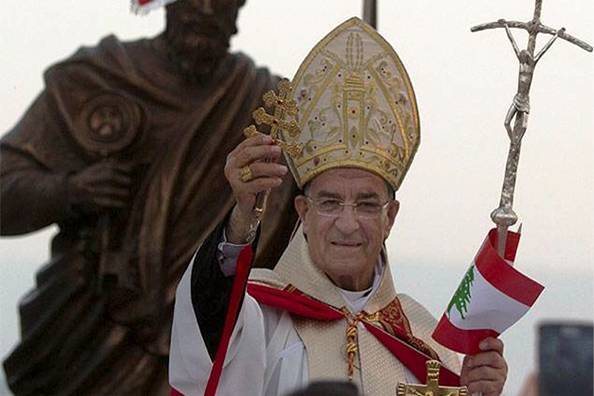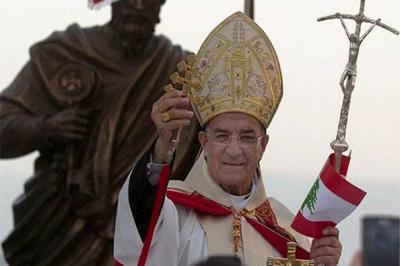The decision of the major Christian parliamentary blocs not to nominate anyone for the presidency of the new government did not satisfy Bkerke, prompting its leader, Maronite Patriarch Cardinal Bechara Boutros Raï, to express a clear stance on the matter. He did not merely voice his disapproval of the positions of "the Strong Republic" and "Strong Lebanon" without naming them, but he also reiterated his support for the efforts of the designated Prime Minister Najib Mikati to form a government, urging political forces to cooperate with him.
Raï stated yesterday, "We had hoped that a broader parliamentary representation would have participated in naming the designated prime minister, whoever it may be, to translate, through a positive and constitutional act, the mandate granted by the people just a few weeks ago, especially since consultations are mandatory. This way, all Lebanese components feel that they share in all constitutional and national obligations." He congratulated Mikati and called for "the expedited formation of a national government due to the country's need for it, so that attention can immediately focus on preparing to elect a rescue president for the republic. There is no justification for any delay in formation other than to distract us from this constitutional obligation. There is no reasonable and national reason that prevents the formation of the government and the election of a new president."
Raï appealed to all parties "to cooperate with the designated prime minister away from conditions that are unworthy of this critical phase, that do not leave enough time, and that do not contribute to enhancing national unity and Lebanon's image before the world."
According to well-informed political sources for "Al-Markazia," Raï, in his remarks, has thrown the ball back into the court of the forces that did not nominate Mikati, particularly the Christian blocs, calling for their cooperation with him to form a government for fear that the delay in the government's birth and procrastination in its formation may negatively affect the awaited presidential elections. The question arises: Can this call change anything in the positions of the Lebanese Forces and the Free Patriotic Movement regarding participation in the government? The Lebanese Forces refuse to sit at the same government table with Hezbollah. As for the Free Patriotic Movement, if they were to receive ministerial, appointment, and banking promises from Mikati, it is very likely they would remain in the new government and grant it their confidence, thereby satisfying the demands of both the presidential team and Bkerke.
The support Mikati received from Bkerke yesterday came after a series of communications between the two sides, primarily aimed at assisting him in forming a government that would facilitate the presidential elections. The sources indicate that this ecclesiastical support will hold if the designated president succeeds in forming a government that is "at the level of events, enhances legitimacy, and promotes sovereignty and independence in the country and towards the outside," as stated by Raï. However, if power-sharing and "the rule of the state within a state" prevail, this support will undoubtedly fall away from Mikati and his government, the sources conclude.




